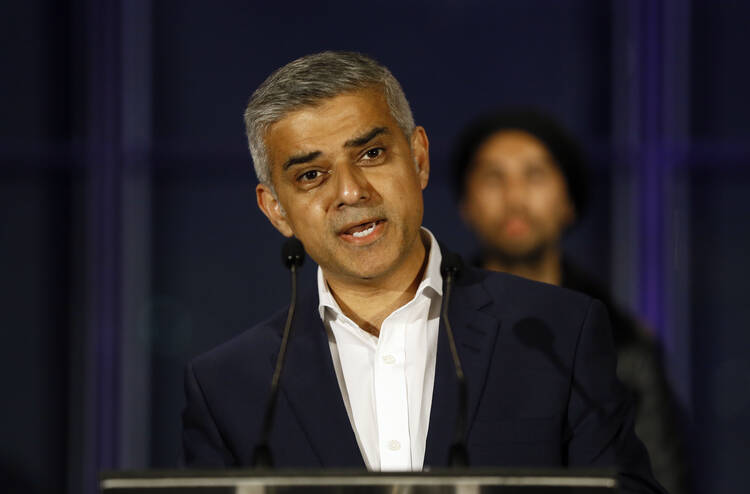Our recent frenzy of electoral activity, here in these four nations of the United Kingdom, produced several unforeseen results; not so much in terms of poll winners and losers, which went generally much as expected, but of reactions. Specifically, and alarmingly, there were several that verged on outright racism and religious bigotry. Native South Londoner Sadiq Khan won election as London’s directly elected mayor with a substantial majority over his nearest opponent, a suburban Tory.
The media story was about his religion, not about his platform. Khan is a Muslim. Something similar happened in Scotland too, where Humza Yousaf took a Glasgow seat in the Scottish Parliament. Yousaf is a Muslim. Both are young, articulate and capable, with proven track-records; one speaks with the slightly nasal, glottal-stopped accent of Tooting and the other with the more guttural, glottal-stops of Glasgow. Each has family roots in Pakistan. Each is a Muslim. Each is demonstrably inclusive, moderate and principled. For some, this was a bit hard to take.
There was a great deal of national and international media interest in Khan’s election. Much of it focused not on the really important fact that this rare triumph for the Labour Party was particularly significant in the context of their recent troubles.
Labour did not suffer too badly elsewhere in England. Missed by much of the media was a significant victory for the party in Bristol, where the new mayor, Marvin Rees, is Europe’s first directly elected mayor of African or Caribbean descent. London, Europe’s largest city, was a beacon for Labour, a rare point of light for a party that, in the new mayor’s own estimation, might have forgotten how to win elections.
Nor was there much attention to Khan’s own story—son of an immigrant bus driver, tough council housing project upbringing—although his strategists pushed the candidate’s working-class roots for all they were worth. No, that was not what mattered, it seemed. He is the first Muslim mayor of a major Western city.
This was always going to be big news—and just the moment to reach for the dog whistle. The slurs against London’s new mayor had begun long before his election. Tories in the House of Commons and his Conservative opponent had tried to change the script by insinuating that he had links with known terrorists. This might have backfired on the Tories, for London is broadly well integrated and genuinely diverse. Then, on his victory, the Drudge Report, a right-wing website based in the United States, decided to name Khan “the first Muslim Mayor of Londonistan.”
Humza Yousaf M.S.P.’s malefaction was to take the oath in the Edinburgh Parliament while wearing a Highland kilt and a Punjabi jacket; and if that wasn’t egregious enough, to repeat the oath in Urdu. It didn’t matter that other members took their oaths in several languages other than English, namely Gaelic, Scots and the Doric of the northeast. Yousaf’s was not the only kilt either. Here, too, the real story should have been of how Nicola Sturgeon’s Scottish National Party won a third successive election and of how Labour was beaten nationally for second place by, of all people, the Tories.
What is at stake here is the urgent need for a conversation about how mainstream, moderate Islam can and wants to coexist with Western liberal values. Can we say yet that these two election victories will rebut the “clash of civilizations” narrative? The Western conservative version of that account dictates that Muslims cannot and will not integrate, while Islam’s own extremists, few in number, demand that no such accommodation should ever happen.
There are tasty rumors, at time of writing, that Khan’s first overseas trip will be to the United States. It is impossible to resist relishing a potential meeting between London’s new mayor and (in T. S. Eliot’s phrase, the “words crack” here), the possible incoming POTUS, The Donald, who has repeatedly proposed a ban on Muslims entering the country.
Perhaps, were they to meet, Khan could entertain Mr. Trump with a story he loves to tell of his induction into the Privy Council. He relates how a Buckingham Palace official had called him to enquire what kind of Bible he would like to swear on. Khan reminded them that, as a Muslim, he would rather swear on the Quran.
“Oh, I don’t think we’ve got one of those here,” answered the flustered palace flunky.
“Don’t worry, I’ll send my own,” suggested Kahn. The relieved official reminded him to take it home afterwards.
“That’s O.K.,” said Sadiq. “I’ll just leave it with you for the next one.”
David Stewart, S.J., is America's London correspondent.








